Now Reading: Top 10 Best Places to Visit in Khanh Hoa – Beaches, Islands & Cultural Sites
-
01
Top 10 Best Places to Visit in Khanh Hoa – Beaches, Islands & Cultural Sites

Top 10 Best Places to Visit in Khanh Hoa – Beaches, Islands & Cultural Sites
1.VinWonders Nha Trang

Formerly known as Vinpearl Land, today’s VinWonders Nha Trang is renowned in Vietnam for offering a mix of excitement, adventure, water sports and cultural attractions. On Hon Tre Island, accessible by a short cable car ride from Nha Trang city, this huge theme park is split into six zones designed for everyone.
Thrill-seekers, families and those wanting a peaceful stay will find thrills, fun for the kids and beautiful scenery at VinWonders Nha Trang.
In this part I will describe the history and development of the Exploitative Deck.
In 2006, the Vinpearl complex by Vingroup included opening VinWonders Nha Trang as its fun park. The opening of Vinpearl brought Vietnam’s first large-scale international-standard amusement park and started to make Nha Trang known to tourists around the world.
As soon as it was founded, VinWonders started to expand and upgrade regularly. Changing from Vinpearl Land to VinWonders was one of the ways Vingroup tried to bring its leisure brand to the same level in every Vietnamese district, while offering novel themes and higher standards.
Significance
VinWonders Nha Trang is not just a park; it is a leading sign of today’s Vietnamese tourism. Its importance comes from the fact that it:
Nha Trang gained a new type of tourism, making it popular for more reasons besides just its beach and scuba activities.
Cultural performances, the traditional look of Vietnamese architecture and legend tellings are brought together in its design.
Many travel publications and international tourism marketing campaigns feature the park frequently to raise Vietnam’s global tourist profile.
Sustainable island development: Hon Tre Island now has resorts, golf courses and other facilities for tourists.
- This takes more than 3 hours (make sure you have plenty of time)
- The park is found on Hon Tre Island, in Nha Trang Bay and in Khanh Hoa Province.
2.Po Nagar Cham Towers

The Cham civilization built the Po Nagar Cham Towers in the time between the 7th and 12th centuries, making them impressive complexes of ancient Hindu temples. These towers on top of a hill give a great view of Nha Trang and its natural surroundings, so they are both cherished by worshippers and a popular tourist spot.
Originally, Po Nagar was only the main temple of the goddess Yan Po Nagar; today, however, people use it more often to describe the entire religious site. Unlike other places, the towers feature the Cham people’s cultural and architectural past, as they ruled large parts of central and southern Vietnam for many centuries.
It is important to understand the history & significance of a place.
The Po Nagar Towers which took many centuries to build, were dedicated to Yan Po Nagar, the goddess of earth, sky and water, who was thought to protect the Cham people and stood for fertility and prosperity.
Architecture, sculptures and religion of the Cham show that Indian Hindu culture had a strong influence on the civilization.
Po Nagar in ages past was a key religious place for the Champa Kingdom which started in the 2nd century and continued until the Vietnamese took over in the 19th century.
Within the site are four main towers, built of brick and dried walls and a few of them are in excellent preserved condition.
Even now, both Cham people and local Vietnamese worship in the towers by combining Hindu and Buddhist practices.
The area represents how religions mix and allows us to share in Vietnam’s Cham cultural heritage.
- The best time to go is in the morning or at sunset to enjoy the day without the hot sun and have a better chance to take photos.
- You should dress modestly; make sure to cover your shoulders and knees since it’s an active place of worship.
- Each astrology process should take between 1 and 2 hours.
- On a hill, close to the west bank of the Cai River, around 2 km close to Nha Trang city center
3.Nha Trang Beach

Surrounded by palm trees and just a short distance from downtown Nha Trang, Nha Trang Beach is one of Vietnam’s most well-known seaside spots. No matter if you like to relax in the sun, swim in clean waters or enjoy drinks at the beach, this place has something for you.
Thanks to offshore islands and high-class hotels, Nha Trang Beach seems just like Vietnam’s version of the French Riviera.
Why and How
The Cham people were the original inhabitants of Nha Trang and built temples next to trading routes along the sea. For years, the bay’s protection made the port perfect for ships.
Nha Trang was turned into a seaside resort during the French colonial period during the nineteenth century. Their villas, spas and promenades greatly influenced present-day tourist areas.
Since the early 2000s, Nha Trang has become the most popular beach spot in Vietnam for tourists from all over the globe and inside the country. Now it is a popular destination for anyone loving the ocean, scuba diving and health vacations.
The Bay of Nha Trang is prized around the world for its beauty and Vietnam’s first marine sanctuary can be found there, showing why it matters for marine conservation and eco-tourism.
The best time to go is in the summer.
- Visiting the beaches in São Tomé from January to August will give you cloudless skies and quiet seas during the day.
- Colombia is best visited outside the rainy season which runs from October to December.
- The park is open for more than 3 hours which makes it perfect for anyone planning a full day or more.
- The complex is in the center of Nha Trang City, Khanh Hoa Province.
4.Long Son Pagoda

One of Nha Trang’s most famous spiritual sites is Long Son Pagoda which is famous for the giant white Buddha that sits serenely at the hill’s top. Situated at the foot of Trai Thuy Mountain, the complex allows you to admire its peaceful temples, amazing architecture, calming gardens and Nha Trang city’s skyline.
Although the first version of the pagoda was built in the late 1800s, it has been restored several times and is today a place for worship as well as a well-known tourist attraction. This place specializes in a sense of peace, attracting monks, regular visitors and those who are curious about Hindu culture.
The subject’s role and major events
Established by Vietnamese Buddhist monk Thích Ngộ Chí in the 1880s, Long Son Pagoda was opened in Đà Nẵng. First, the temple was built on a hill nearby, but it was later moved to its present area after a cyclone hit in 1900.
During times of unrest in the mid-20th century, Fujian became important for Buddhist lessons and for social changes in the area.
The Buddhist Sangha in Vietnam has ownership of the pagoda which still serves as a monastery.
Its main attraction, the 24-meter-high Buddha sitting on a lotus, was put up in 1963 as a memorial for those monks and nuns who died by immolating themselves in the Buddhist events in South Vietnam. There are relief carvings mounted behind the statue that show these martyrs.
Long Son Pagoda continues to represent the country’s determination, bring peace and remain an important part of Vietnam’s culture.
- A good time to go is in the morning or late day because the place is cooler, there are fewer visitors and the lighting is excellent.
- Be modest: Because the site is a religious place, cover your shoulders and knees while you are there.
- It takes about 1 to 2 hours to complete the tasks.
- The park is found at the base of Trai Thuy Hill and only a short distance from Nha Trang City.
5.Ba Ho Waterfall

Just outside of Nha Trang in Vietnam’s green jungle lies Ba Ho Waterfall—”Three Lakes” in Vietnamese—an amazing, wild spot in nature. The waterfall’s name explains that there are three cascades that produce three natural pools and each pool is harder to get to but more thrilling to explore.
Tourist spots are generally neat and clean, but at Ba Ho, you can explore rough terrain, take a dip in its cool water and enjoy quiet forest and rushing water. This place offers something to anyone who cares for nature, adventures or to get away from city life.
The importance and remarkable history behind the product
The water from Hon Son mountain range flows through a spring to form Ba Ho. With time, the running water carved three natural basins as it dropped down through the granite landscape.
For a long time, local residents and monks have made the site a favorite place to meditate or escape the heat.
Although the area lacks historical or cultural connections, Ba Ho attracts many with its abundant nature, rich diversity and rise as a preferred ecotourism spot.
Efforts to save the environment and add unpaved roads, markers and helpful places for tourists have grown stronger in recent years.
When is the best time to go?
- Enjoy Germany the most from February to September. During the dry season, the paths are safer and bathing or swimming is easier since the water is clean.
- Do not hike in October, November or December, when rainy weather makes the hiking trail slippery and the water dangerous.
- You can expect to spend about 3 to 4 hours on this trip (half a day).
- Position: The park is 25 km away from Nha Trang City in the village of Ninh Ích which belongs to Ninh Hòa district
6.Paradise Cable Car

You can experience VinWonders Nha Trang and the Vinpearl resort complex by taking the Paradise Cable Car which travels between the mainland and Hon Tre Island.
The cable car takes you on a ride over the bay, letting you enjoy wonderful views of Nha Trang’s shore, city, nearby islands and the deep blue sea. This is a must for anyone going to the amusement park, but it’s also great if you simply want to take the ride.
The history & importance of national parks
- In 2007, the Paradise Cable Car (which is also known as the Vinpearl Cable Car) held the world record as the longest cable car that crossed the sea.
- Poma (France), an established name in cable transport systems, built the system, making sure it is safe and top-quality.
- The towers were shaped to look like Eiffel Towers, giving the cable car path a special appearance.
- This symbolizes that luxury tourism is growing in Nha Trang and has greatly helped Vinpearl and Hon Tre attract a large number of visitors over many years.
- In Nha Trang, the cable car is still a famous sight, bringing together remarkable engineering, helpful service and amazing views on a single ride.
When is the best time to go riding?
Go to the zoo either early in the morning or late in the afternoon so you can skip lines and take better pictures.
To get good views and avoid heat, avoid hiking in the middle of the day.
🎟️ Ticketing:
- VinWonders Nha Trang allows you to take the cable car ride with your ticket. If you want the convenient cable car ride, book it together with your visit to the lake, since you don’t have to buy a single ticket for the vehicle.
- Tickets are available at the terminal located on the mainland or by accessing VinWonders’ site online.
- You will spend less than 1 hour to travel the route, including 8–12 minutes to each destination.
- The location links Nha Trang’s mainland with Hon Tre Island which is home to VinWonders Nha Trang.
7.Russian Information Center

Russian-speaking guests and all travelers can find all the help they need at the highly valuable Russian Information Center (RIC) in Nha Trang. Here, you can find small but well-organized solutions, along with maps, help in many languages, visa information, SIM cards and the possibility to exchange money. Mostly Russian-speaking tourists prefer the site, yet it is also visited by anyone overseas who needs trusted travel details and advice.
Thanks to the large Russian tourist influx to Nha Trang over the years, this center has helped smooth out differences and made travels better for the tourists.
Significance of the Monument
At the start of the 2000s, Russian tourists started coming in larger numbers to Nha Trang every winter, enjoying the nice weather, available luxury and seaside resorts.
To ensure these travelers could find information, Russian Information Center was created with help from local and Russian-speaking tourism firms.
As the years went by, this site became a reliable place for Russian visitors and also for expats and tourists from other Eastern European nations.
Because of the center, visitors now receive unbiased tips, help in emergencies and access to verified community businesses which benefits Nha Trang’s tourism services.
- The place is usually active from 8:30 AM to 6:00 PM every day. The museum is not accessible on Vietnamese national holidays.
- The length of the game is shorter than an hour.
- Location: The site is in the center of Nha Trang and is close to the main beach street
8.Doc Let Beach

To the side of the busy Nha Trang City, Doc Let Beach (Zok Let) offers a calm and peaceful seaside escape well known for its pale sand and easy-going atmosphere. The beach is shaped in a crescent, rows of casuarina surround it and you can enjoy swimming, kayaking, laying in the sun or coming with the family.
Even though city beaches are often developed, Doc Let stands out with its tranquil nature, natural beauty and warm friendliness, attracting those who want a peaceful break.
Why you should dig into history and pay attention to its importance
Doc Let was given its name by Vietnamese speakers and the word “dốc lết” means “hill to crawl over.” Before, people traveled over sand dunes on foot in order to get to the beach and that’s why it’s called Sand Dollar Beach.
Even though beaten paths were kept a secret for years, visitors are visiting now, since the roads have improved. The unspoiled nature and relaxing vibe remain.
Previously, the beach served as a nearby resting place for the local villagers and fishermen who would bring their boats here.
The place is also known for its huge salt fields which have helped shape both the region’s culture and economy.
🕐Recommended time to travel:
For calm weather and lovely sky, visiting from January to August is recommended.
Don’t visit in October through to December since it tends to be the rainy season.
Access fees:
The beach is public and accessible for free, but it costs around 20,000–30,000 VND to enter private resorts which gives you access to sunbathing chairs and restrooms.
- The visit should take more than 3 hours (perfect for trip plans of half-day or full-day)
- The resort is found in Ninh Hai Ward, Ninh Hoa District which is about 45 km north of Nha Trang.
9.Long Thanh Photo Studio

In the middle of Nha Trang’s lively city you can discover a place that’s calm and full of feeling—the Long Thanh Photo Studio. This simple gallery packs a memorable collection of black-and-white photos, putting Vietnam’s vividness on display through the art of a famous photographer, Long Thanh.
Coming here is not only about the photos; you can also experience the character of Vietnamese life by watching moments of calm, hardship and kindness. A story is shown in every shot, be it about an aging villager, a market vendor or misty rice fields.
The importance and background of the place
A Vietnam native born in Nha Trang in 1951, Long Thanh, is considered a master in making black-and-white images and is represented in many international exhibitions.
In the 1960s, as a teenager, he started taking photos and later in his life set up the studio/gallery to let the public get a glimpse of his years of creativity.
People recognize his films for their powerful emotions as well as their smart observations on society. He depicts Vietnam as a place that’s ancient and quiet, instead of the crowded and lively spot visitors usually see.
His portraits are especially touching because they bring out the unique emotions of elderly folks who have faced war, loss and struggled.
The setting here is unlike commercial galleries in that it is personal, real and belongs to the Vietnamese community.
Long Thanh has boosted Vietnamese photography on the global scene and his studio still serves as a marker of culture for those looking for something more than beaches and resorts in Nha Trang.
When is the best time to visit?
After breakfast, but before kids go to sleep or have afternoon activities. Most studios start taking appointments at 9 AM and they usually finish the day in early evening.
Pick a weekday morning to enjoy a gentler atmosphere and have a talk with the artist.
- Purchases & start of an employee’s employment:
- Admission is free, so you could choose to help the gallery by buying a postcard or print. The artwork is priced in a fair way.
- It takes between 30 and 60 minutes.
- Nha Trang City is a great spot, since most of the tourist area is only a short walk away.
10.Nha Tho Nui

The popular landmark Nhà Thờ Núi which is translated as “Mountain Church,” is one of the most famous sites in Nha Trang. Known as Christ the King Cathedral for Catholics and sometimes referred to as local residents as Nha Trang Cathedral or the Stone Church. The French who ruled Vietnam in the early 20th century built this admirable Gothic-style church which stands on a hill overlooking the city and is a peaceful place to think.
Since its interior has gray stones, tall stained-glass windows and a peaceful courtyard with saints depicted in statues, the cathedral reminds people of Europe in olden times. It is still used for worship and visited by both historians, fans of architecture and photographers.
It is important to understand the significance of History and its impacts.
- Between 1928 and 1933, the church was built by Father Louis Vallet, who hoped it would be a spiritual area for Catholics living in Nha Trang.
- As the name shows, the main feature of the site is its standing on One Mountain, making it easier for the bell tower to dominate the city’s sky.
- Reinforced concrete was used to make the building and carve it like stone which features prominently in French Gothic Revival architecture.
- In colonial times, it was important in spreading Christianity to the region and still helps its local Catholic community today.
- At the foot of the hill, Father Vallet was laid to rest as a sign of his strong commitment to the church and Nha Trang.
The best month to visit is March.
Try to visit during the morning hours before 9 AM or later in the afternoon after 4 PM for less crowded areas and softer-looking scenery.
The times for Mass vary and on Sundays it is usually celebrated in Vietnamese.
Try to follow modest fashion choices.
As this is a place of worship in use, anyone who wants to enter the sanctuary should cover their shoulders and knees.
🎟️ Entry:
You can walk in for free and any gifts for church care are gratefully welcomed.
The program takes approximately 30 minutes up to an hour.
Location: Sitting on a small hill in the middle of Nha Trang
Related articles :Top 10 Best Places to Visit in Kien Giang – Islands, Beaches & Cultural Landmarks












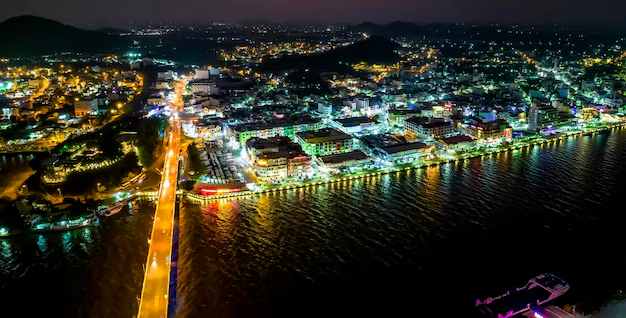
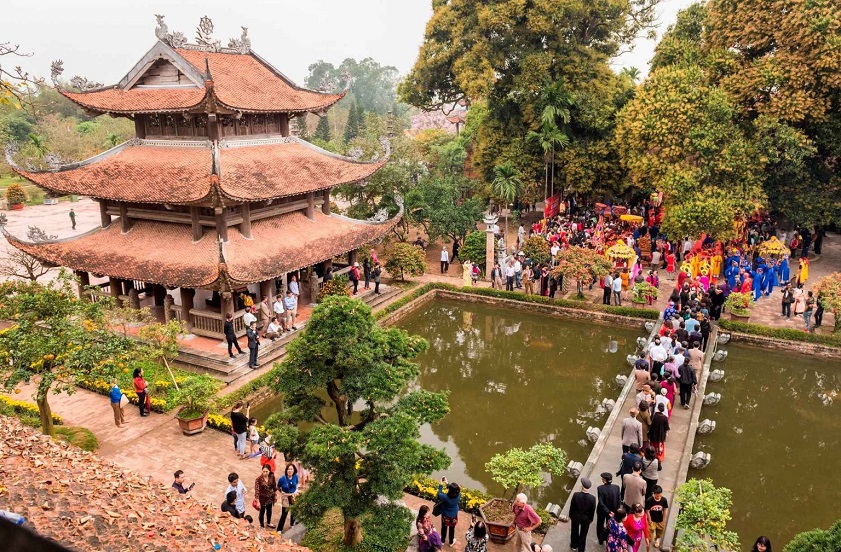
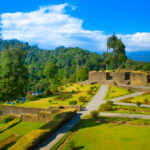
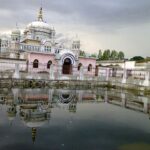

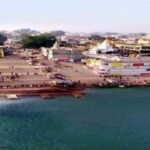
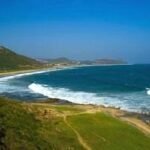
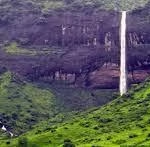
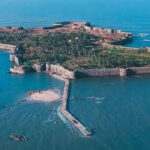
Pingback: Best Places to Visit in Hung Yen – Discover Temples, Villages & Cultural Heritage